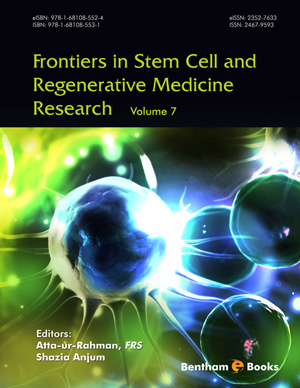Abstract
Articular cartilage lesions that may be limited (focal defects) or generalized like in osteoarthritis (OA) constitute a key, unsolved clinical problem as a result of the inadequate ability of this tissue to self-repair. Thus far, none of the pharmacological treatments and surgical options allow to reproduce the original cartilage integrity in patients, resulting instead in the formation of a fibrocartilaginous reparative tissue with poor mechanical function that is unable to withstand natural loading and stresses throughout life. Approaches based on the administration of mesenchymal stem cells (MSCs) provide attractive tools to enhance the repair of cartilage lesions as such cells are easy to acquire, expand, and can specifically commit towards the chondrocyte phenotype. This chapter aims at providing an overview of the most current and innovative strategies based on the implantation of MSCs as a means to enhance cartilage repair both in focal defects and in OA lesions in vivo. These approaches include scaffold-free and scaffold-guided procedures as well as gene-based strategies to stimulate the cell chondrogenic activities as a means to restore the natural structure and mechanical integrity in sites of cartilage damage.
Keywords: Focal defect, Osteoarthritis, Mesenchymal stem cells, Chondrocyte phenotype, Scaffolds, Hydrogels, Solid scaffolds, Multiphasic scaffolds, Gene therapy, Cartilage repair.


















